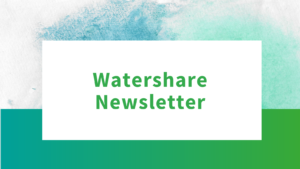
EU research and innovation calls for proposal, and proposal and project reviews can support effective stakeholder engagement (SHE) in inter- and trans-disciplinary (ITD) research and innovation projects. This is possible by more explicitly promoting and rewarding the inclusion of ITD methodologies, flexible and context-tailored SHE design, implementation and evaluation, inclusion of Social Science and Humanities (SSH) expertise, and adequate allocation of time and budget for ITD and SHE practices. Furthermore, improvements can be made by ensuring proposal and project review committees comprise SSH experts and are properly guided in valuing and rewarding good ITD and SHE practices.
Since the European Union’s (EU) Seventh Framework Programme (FP7), research and innovation funding programmes Horizon 2020 and Horizon Europe have made significant strides to foster continuous SHE for co-creation and increased acceptance of solutions for water smart societies. The introduction of the Responsible Research and Innovation framework (RRI) and a stronger emphasis on open science, public engagement, and inclusiveness demonstrate the European Commission’s (EC) keenness and commitment to ensuring collaborative and inclusive SHE in European research and innovation projects.
Research and innovation projects funded by the EU are increasingly ITD oriented, particularly within the field of sustainability research. Integrating scientific disciplines and scientific and non-scientific knowledge with the ambition of co-creating innovative solutions to societal problems requires specific expertise, methods and tools. The design and implementation of SHE practices within ITD projects is an area of continued learning and improvement, with best practices and lessons learned documented in both scientific publications and secondary literature. Integrating these insights into the structure of the EU Research and Innovation Programmes is essential to align research outcomes with societal needs and values, thereby enhancing the societal impact of EU-funded projects.
To support the continued fostering and strengthening of stakeholder engagement in EU funded research and innovation projects, the CIRSEAU Stakeholder Engagement Working Group has developed a set of recommendations to the European commission, as well as a number of guiding principles and actions for researchers and practitioners to ensure more effective, inclusive, and sustainable stakeholder engagement practices in their projects, focusing on three project phases (proposal, implementation, and post-project). These recommendations to the European Commission are derived from the guiding principles and actions based on the experiences on stakeholder engagement from 35 case studies across the 5 sister projects of the CIRSEAU cluster (B-WaterSmart, REWAISE, ULTIMATE, WATER-MINING and WIDER UPTAKE).
Read the recommendations brief and the guiding principles and actions.



